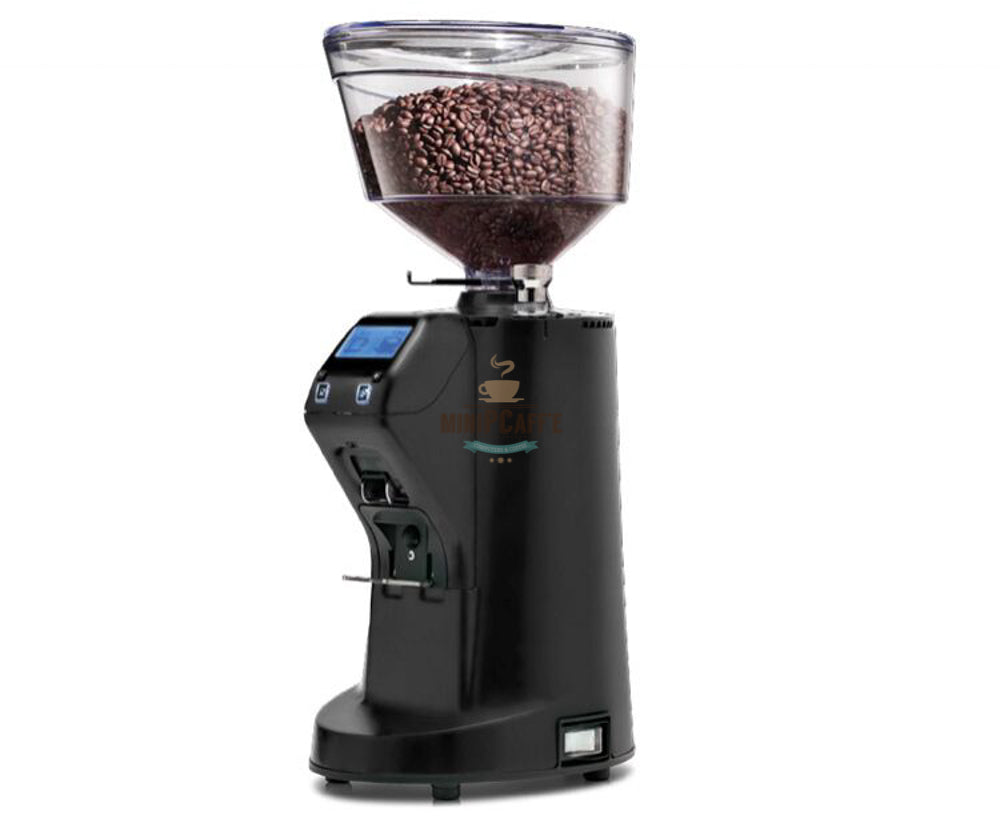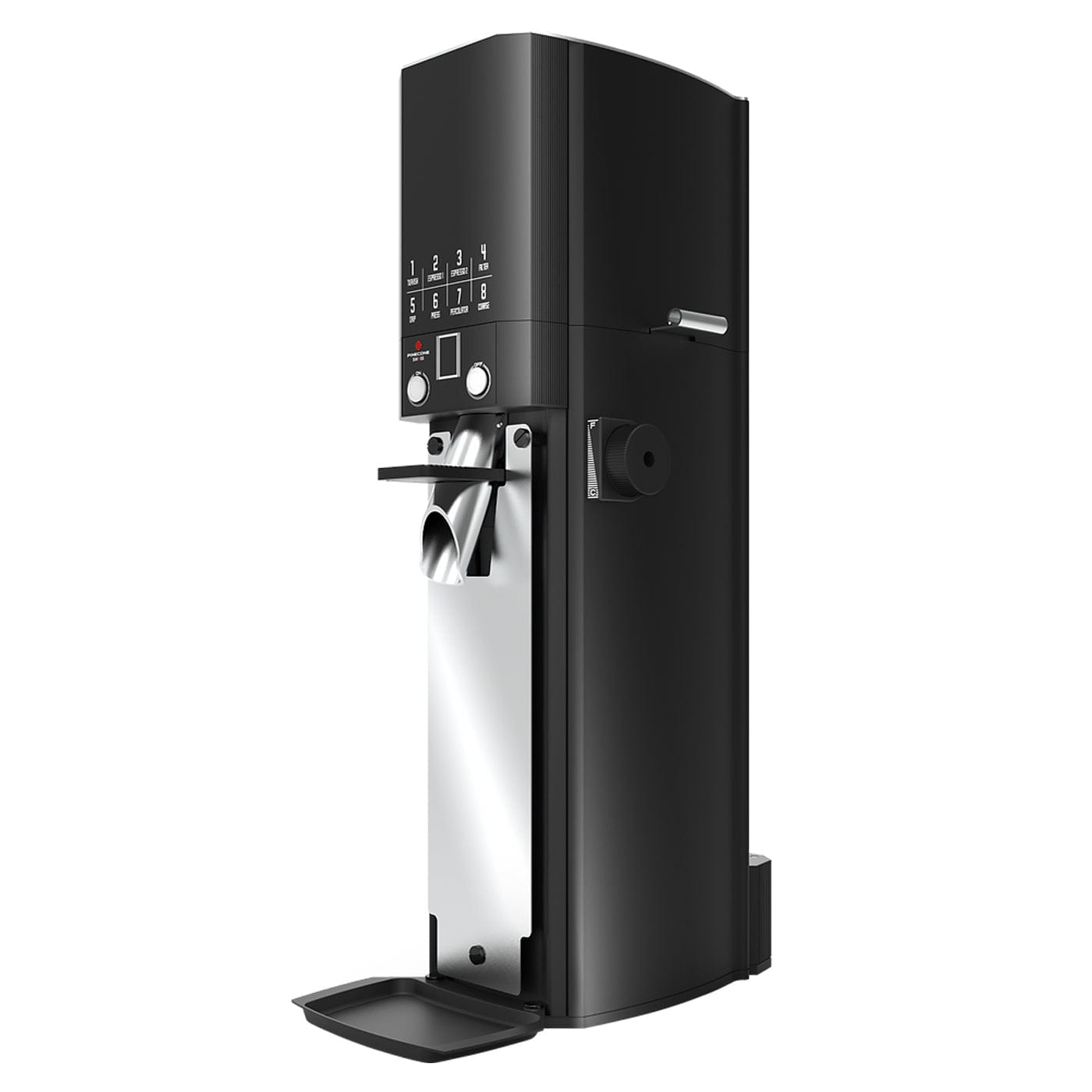Industrial Coffee Mill Guide: Increase Performance and High Quality
In the competitive landscape of coffee manufacturing, choosing the appropriate industrial coffee grinder plays an essential duty in enhancing both efficiency and product high quality. Recognizing the subtleties of numerous mill kinds and vital attributes-- such as personalized work setups and robust building-- can dramatically affect the last flavor account of the coffee.
Understanding Mill Kinds
When picking a commercial coffee grinder, understanding the various kinds readily available is vital for maximizing both taste extraction and operational efficiency. Both key kinds of grinders are blade grinders and burr mills. Blade mills make use of sharp blades that slice coffee beans into inconsistent sizes, causing unequal extraction and possibly unfavorable tastes. While blade mills are commonly a lot more appropriate and budget friendly for small operations, they are typically not recommended for commercial usage.

Inevitably, selecting the best kind of grinder is integral to preserving top quality and effectiveness in coffee manufacturing, making it essential for services to buy top notch burr mills for optimal results.
Secret Attributes to Consider
Choosing a commercial coffee grinder needs mindful factor to consider of several crucial attributes that can dramatically influence both performance and the total coffee experience. Among the primary facets to assess is the grinding system. Burr mills are usually preferred over blade grinders, as they supply a regular grind size, which is important for ideal removal and taste.
An additional vital feature is the mill's capability. Relying on the quantity of coffee you require to process, select a version that can manage your needs without giving up speed or high quality. Furthermore, take into consideration the grind setups used. A functional mill with numerous setups permits you to customize the grind size to various brewing techniques, boosting the coffee's taste account.
The building material also contributes in toughness and maintenance. Stainless steel components frequently provide longevity and are less complicated to cleanse, which is important for maintaining health criteria. Examine the mill's sound level, especially in an active coffee shop or production setting, where extreme noise can be turbulent. Investing in a grinder that stabilizes these functions can significantly enhance both functional efficiency and the top quality of the coffee served.
Optimizing Grinding Refine
To accomplish the very best cause coffee prep work, optimizing the grinding procedure is essential. The grind dimension significantly influences extraction, flavor, and total top quality of the made coffee. Different developing techniques call for specific grind dimensions; as an example, espresso demands a great work, while French press demands a coarse texture. Recognizing the connection between work size and developing method is the very first step in optimization.


Additionally, keeping track of the grinding speed can enhance the procedure. Slower grinding usually produces less warm, protecting fragile flavors and scents. Conversely, much faster grinding might create too much warm, adversely influencing the coffee's top quality.
Upkeep and Treatment Tips
Correct upkeep and treatment of industrial coffee grinders are important for guaranteeing ideal performance and longevity. Regular cleansing is the structure of maintenance; residue buildup can influence taste and grinding effectiveness. It is a good idea to clean the grinder after each usage, cleaning down the exterior and removing any kind of coffee premises from the burrs.
Furthermore, examine the grinding burrs for wear and tear. Dull burrs can endanger grind uniformity, so they ought to be replaced as needed. Industrial Coffee visit this page Grinder. Periodically adjusting the mill is likewise important, as this maintains the wanted grind dimension for numerous brewing approaches
Lubrication of moving components must be carried out according to the maker's specs, as this minimizes friction and lengthens the life of the tools. It is necessary to use food-grade lubricants to make sure safety and conformity with health laws.
Finally, maintain the grinder in a steady and dry environment to avoid corrosion and corrosion. By sticking to these upkeep and treatment pointers, operators can enhance the effectiveness of their commercial coffee grinders while making certain top notch output and expanded operational life.
Roi Evaluation
Evaluating the roi (ROI) for commercial coffee grinders Learn More is important for organizations looking for to maximize their coffee production abilities. A detailed ROI analysis helps identify the financial viability of purchasing premium mills, permitting organizations to consider the first expenses versus possible gains.
Analyze the acquisition cost of the grinder, consisting of setup and any needed adjustments to existing facilities. High-performance mills usually lead to minimized grinding time and enhanced throughput, which can dramatically enhance performance.
Furthermore, consider the effect on product top quality. Industrial Coffee Grinder. Superior grinders generate a more regular grind dimension, which can enhance taste profiles and consumer fulfillment, ultimately driving sales. By raising the high quality of the final product, services can justify higher rates, resulting in increased revenue
Conclusion
In recap, a commercial coffee grinder plays an essential duty in boosting both performance and item top pop over to this site quality within coffee production. Eventually, the calculated investment in a reputable grinder contributes dramatically to improved revenue and competition in the coffee sector.
In the affordable landscape of coffee production, choosing the right commercial coffee mill plays a crucial duty in improving both efficiency and item high quality. The two key kinds of grinders are blade grinders and burr grinders. Within the burr grinder category, there are level burr grinders and conical burr mills, each with its benefits. Burr grinders are generally favored over blade mills, as they offer a consistent grind dimension, which is important for optimal extraction and flavor.
In summary, an industrial coffee mill plays a pivotal duty in enhancing both efficiency and item quality within coffee production.